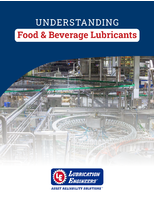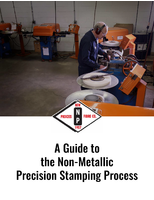ASTM Committee approves latest corrosion inhibitor standard.
Press Release Summary:
Part of ASTM International Committee G01 on Corrosion of Materials, Subcommittee G01.05 on Laboratory Corrosion Tests has been developing series of standards on performance testing of corrosion inhibitors, including most recently approved ASTM G202, Test Method for Using Atmospheric Pressure Rotating Cage. In addition, G01.05 is developing ASTM WK27103, Guide for Determining Corrosivity of Crude Oils, which will be used by production personnel, pipeline operators, and refinery operators.
Original Press Release:
ASTM Committee on Corrosion of Materials Approves Latest Corrosion Inhibitor Standard
W. CONSHOHOCKEN, Pa., -Corrosion inhibitors are used extensively for pipelines in the oil and gas industry. Subcommittee G01.05 on Laboratory Corrosion Tests has been developing a series of standards on performance testing of corrosion inhibitors, including the most recently approved: ASTM G202, Test Method for Using Atmospheric Pressure Rotating Cage.
Subcommittee G01.05 is part of ASTM International Committee G01 on Corrosion of Materials. At the beginning of the activities that resulted in the development of ASTM G202, Subcommittee G01.05 identified three methodologies to be standardized:
General aspects of all three methodologies are covered in ASTM G170, Guide for Evaluating and Qualifying Oilfield and Refinery Corrosion Inhibitors in the Laboratory, which was developed in 2001.
In addition, G01.05 is also currently developing ASTM WK27103, Guide for Determining Corrosivity of Crude Oils. Production personnel, pipeline operators and refinery operators will be the primary users of the standards developed by G01.05.
The subcommittee welcomes participation, particularly for round robin experiments using the rotating cylinder electrode and jet impingement techniques. G01.05 is currently conducting round robin experiments using rotating cage with 10 companies from Canada, India and the United States.
To purchase ASTM standards, visit www.astm.org and search by the standard designation number, or contact ASTM Customer Relations (phone: 610-832-9585; service@astm.org). ASTM International welcomes and encourages participation in the development of its standards. For more information on becoming an ASTM member, visit www.astm.org/JOIN.
ASTM International is one of the largest international standards development and delivery systems in the world. ASTM International meets the World Trade Organization (WTO) principles for the development of international standards: coherence, consensus, development dimension, effectiveness, impartiality, openness, relevance and transparency. ASTM standards are accepted and used in research and development, product testing, quality systems and commercial transactions.
View this release on the ASTM Web site at www.astmnewsroom.org.
ASTM Committee G01 Next Meeting: Nov. 17-18, November Committee Week, San Antonio, Texas
Technical Contact: Sankara Papavinasam, CANMET Materials Technology Laboratory, Ottawa, Ontario, Canada, Phone: 613-947-3603; spapavin@nrcan.gc.ca




